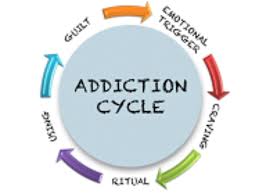
Tanning addiction and mental health, are both growing concerns, especially among young adults and teens.
Are there mental health issues hidden in the pursuit of bronzed skin? Is there more there than the desire to achieve the ideal sun-kissed glow?
Yes, a concerning trend has emerged in recent years.
Tanning addiction is emerging as the villain in this cycle.
This phenomenon, that is known as tanning addiction is characterized by an obsessive and compulsive urge to achieve and maintain a dark tan.
Tanning addiction has far-reaching implications for both our physical health as well as our mental well-being.
With our society’s ever-growing emphasis on appearance, the pressure to conform to beauty standards intensifies. For both males as well as females.
Understanding how this link between tanning addiction and mental health becomes crucial. other than the usual blame shifted to social media, are there other influences?
As I began to look into this modern-day tanning addiction, not just skim, but dig into this skin-dangerous activity, here is what I am finding.
Even with the high risks to their skin health, addicts are still tanning.
Then there is the impact of addiction on mental health. Addiction makes it difficult to make good decisions on skin care.
Unveiling the Modern-Day Struggle
There are influences that some are finding hard to ignore to get tan and stay tan. Maybe even to the point of unsafe dark tan. We all have a point that the risk of skin cancer makes tanning dangerous.
In years before, we lived in darkness. No smartphones, no access to trends in the times they are forming. We had to wait for the morning papers, or the news on TV. Or even the arrival of monthly magazines!
I told you, we lived in darkness!
We were accustomed to pursuing a tan in the warmer months. We were living in simpler times, I will agree. However, even back then we had friends who had dark tans, early in the warmer season.
Tanning has long been a way to manipulate the color of skin. Some have survived mahogany tan skin all their lives with no skin cancer.
Then some gave up tanning after a sunburn or two and are now dealing with multiple skin cancer issues. There is no way to know when you have exposed your skin that one time too often.
That one time that made your skin unable to come back anymore.
In this age of social media and constant self-presentation, tanned skin has become a symbol of attractiveness and vitality.
Popular influencers, celebrities, and models often showcase their bronzed bodies on various online platforms. Showing tans even in the cooler time of year.
This is further fueling the desire for a deep tan.
Indoor tanning salons and the availability of self-tanning products have only facilitated this trend, making it easier for individuals to chase the elusive glow.

Mental Health Implications
Let’s talk about those Mental Health Implications:
Tanning addiction is not currently recognized as a distinct mental disorder.
However, research suggests that it shares similarities with other addictive behaviors.
Studies have shown that excessive tanning can lead to a release of endorphins. Those endorphins are creating a temporary euphoric sensation that reinforces the addictive cycle.
The repetitive behaviors associated with tanning addiction will become ritualistic. This enables the tanning to serve as coping a mechanism for underlying emotional distress.
Feeling unattractive because you overslept and didn’t have time to do the full grooming routine before work. This becomes a trigger to stop by the tanning salon on the way home.
Societal pressure to conform to beauty ideals can significantly impact individuals’ self-esteem and body image. Both males and females are affected by tanning addiction.
The relentless pursuit of a tan can become a means of seeking validation and acceptance within your peer group at any age.
This can lead to a cycle of dependency on tanning.
This vicious cycle can escalate into body dysmorphic disorder. Or depression, and anxiety.
Individuals may develop an unhealthy preoccupation with their appearance.
Then they may experience intense distress when their desired level of tanness is not achieved.
Body Dysmorphic Disorder
Excessive tanning, to the point of addiction, is not just a matter of appearance. It can also be closely associated with body dysmorphic disorder (BDD.)
Body dysmorphic disorder is a mental health condition that involves an obsessive preoccupation with perceived flaws in one’s appearance.
Individuals with BDD often have a distorted view of their bodies. They may focus intensely on specific features.
This results in them engaging in compulsive behaviors to try and fix or conceal these perceived flaws. Do you know very attractive people who had breast enhancement?
Was the perceived flaw enough to allow yourself to be put to sleep, or have foreign items placed in your body?
Excessive tanning can become a manifestation of this disorder.
Individuals may believe that achieving a specific level of tan will hide or improve their perceived imperfections.

Marnie’s Story
Personal stories allow us to see with firsthand accounts of the impact of tanning addiction and its association with body dysmorphic disorder.
Marnie, a 28-year-old woman who struggled with BDD, shared her experience of excessive tanning as a coping mechanism. I met her in our adult water aerobics last summer.
She described feeling immense anxiety and distress if she did not achieve her desired level of tan. She believes that her appearance was flawed and unattractive without it.
Marnie’s story sheds light on the deep-seated psychological factors that can drive individuals to engage in excessive tanning.
They feel that tanning is a means of managing their body image concerns.
Individuals with BDD often experience significant distress and impaired functioning due to their obsessive thoughts about their appearance.
These perceived flaws may be minor or nonexistent to others. But individuals with BDD fixate on them. They even build up leading to feelings of shame, self-consciousness, and anxiety.
A Quick Review
Safe and Confidential Environment: Seeking professional help creates a safe and confidential space. A space for individuals to express their thoughts, feelings, and concerns without judgment.
Mental health professionals adhere to strict ethical guidelines to ensure client confidentiality.
This confidentiality builds trust and openness in the therapeutic relationship.
Mental health professionals have and utilize evidence-based interventions that are scientifically validated and proven effective.
With a trained professional to help us through the various therapeutic modalities, such as these parts of our addiction can be addressed:
cognitive-behavioral therapy (CBT)
dialectical behavior therapy (DBT)
acceptance and commitment therapy (ACT)
Using these programs as guides, Profesionalscan help individuals develop coping strategies, challenge negative thought patterns, and cultivate healthier behaviors.

Helping Tanning Addiction and Mental Health Issues
Mental health professionals take a holistic approach to treatment. They include the interplay of biological, psychological, and social factors.
Trained professionals can help individuals explore the underlying causes of their mental health struggles, and identify triggers. Then help develop comprehensive strategies for long-term well-being.
Support and Validation: Professional help offers much-needed support and validation.
It can be a relief to share your experiences with a trained professional who can empathize. Who can provide guidance, and help you navigate your mental health journey?
You don’t have to face these challenges alone. Without sound guidance
Seeking professional help is not a sign of weakness but a courageous step towards taking control of your mental health and overall well-being.
It is essential to prioritize your mental health, just as you would prioritize your physical health.
In addition to seeking professional help, it is also important to reach out to trusted friends or family members who can provide emotional support.
Remember, recovery is a journey, and with the right support system and professional assistance, healing, and growth are possible.

Let’s Beat Up On Social Meda
“The Cult of the Golden Glow” is our first target.
Social media platforms, such as Instagram, Facebook, and TikTok, have become virtual showcases.
Showcases for individuals to display their perfectly tanned bodies.
Influencers, celebrities, and even everyday users often present themselves with sun-kissed skin, fostering the idea that tanned equals beautiful and desirable.
These platforms provide a curated space where tanning addiction is perpetuated, as users strive to achieve the same level of attractiveness and popularity.
Filters, Editing, and Unrealistic Standards are the lifeblood of the media!
The main reason social media promotes tanning addiction? It can manipulate reality through filters and editing tools.
Users can alter their appearance, including skin tone, to fit societal expectations of beauty.
These digitally enhanced images set unrealistic standards and foster an obsession with obtaining a perfect tan.
Such unattainable ideals can lead to low self-esteem, body dissatisfaction, and an unhealthy preoccupation with tanning.
Celebrities, with their vast social media followings, often have a significant impact on tanning trends.
When influencers or celebrities endorse specific tanning products or services, it can generate a widespread desire to emulate their appearance.
The constant exposure to these endorsements can create a sense of urgency to achieve the same level of tanned perfection. Of course, this is further fueling the addiction.
Social Validation and Peer Pressure
Social media thrives on the concept of validation through likes, comments, and shares.
Posting pictures of a tanned body can garner attention, admiration, and a sense of acceptance from peers.
This validation reinforces the addictive behavior, as individuals associate their tanned appearance with positive social interaction.
The fear of missing out or being left behind can intensify the pressure to achieve and maintain a tan. This will be leading to excessive sun exposure or the use of tanning beds.
Social media platforms often lack proper education and awareness about the dangers of excessive tanning.
While some influencers may promote safe practices, many fail to address the potential risks.
The risks of skin cancer. The certainty of premature aging, and skin damage.
This lack of comprehensive information perpetuates the misconception that tanning is harmless and fuels addictive behavior.
Sami’s Take on Tanning Addiction and Mental Health
The modern-day context of tanning addiction intertwines with the pervasive influence of social media. Not forgetting societal beauty ideals, and the addictive nature of tanning itself.
The detrimental impact on mental health cannot be overlooked. Not when individuals are experiencing a range of psychological distress.
Recognizing the link between tanning addiction and mental health is crucial for fostering and helping us with awareness.
Awareness is important, but so is providing support, and promoting healthier perspectives on beauty.
Addressing tanning addiction requires a multidimensional approach. One that encompasses education, and social awareness. As well as accessible mental health resources to break free from the grips of tanning addiction.
Resources should prioritize holistic well-being.
Professional help is needed when treating addicted people.
Tanning addiction in the modern-day is a multifaceted issue. One that is influenced by media, advertising, peer pressure, and societal norms.
The detrimental impact on mental health cannot be underestimated.
It is imperative to continue researching and raising awareness about tanning addiction to provide support and promote healthier attitudes.
By addressing the underlying factors that contribute to tanning addiction, we can create a society that values holistic well-being and embraces diverse definitions of beauty.
Source Of Some of the Information :
Recognizing the detrimental effects of tanning addiction on mental health is crucial for developing effective interventions and support systems.
Mental health professionals, dermatologists, and educators should collaborate to raise awareness about the risks associated with excessive tanning.
Promote healthier alternatives for achieving a positive body image.
American Journal of Psychiatry 2019
A 25-year-old woman who developed a tanning addiction.
The woman exhibited withdrawal symptoms, such as irritability and restlessness, when unable to tan.
The addictive nature of excessive tanning shows its impact on mental well-being.
Social Meda Research by Fardouly et al. (2021) demonstrated that exposure to images of tanned bodies on Instagram increased body dissatisfaction.
Social media platforms like Instagram have been documented in various studies.
Exposure to images of tanned bodies also fueled the desire for a tan among young women. The age groups of individuals most affected by tanning addiction?
Young women, 18 to 30!
Thank you,
Sami
